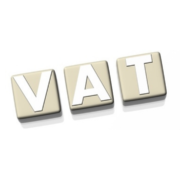Guide to Global Mobility – Managing Tax Obligations of Inbound Workers

As remote working becomes more popular, employees are no longer obliged to work at their employer’s premises or indeed in the same country as the employer’s premises. This presents a number of opportunities and challenges for employers.
In the second of this global mobility series, we focus on the payroll tax compliance obligations for foreign employers with employees working in Ireland under a foreign contract of employment (inbound workers).
This can occur where:
- an employee relocates to Ireland, or
- an employer sends an employee to Ireland for a short period to fulfil part of a contract e.g. as part of a construction or installation project.
The basic rule is that all foreign employers must register as an employer in Ireland and operate Irish payroll taxes on any salary attributable to employment duties carried out in Ireland by their employee. This applies even if the employer has no business premises in Ireland or the employee is working from home in Ireland. It applies irrespective of the tax residence status of the employee.
There are a number of exceptions to this rule, which come as a welcome release for foreign employers:
-
Business visits of up to 30 workdays in a year
A foreign employer need not operate Irish payroll taxes on the salary of an employee who is employed under a foreign contract of employment and carries out the duties of that employment in Ireland for no more than 30 workdays in aggregate in any year.If the employee exceeds the 30 workday threshold and an obligation to operate Irish payroll taxes exists, the employer must operate Irish payroll taxes from the employee’s first workday in Ireland.
-
Business visits greater than 30 workdays and not more than 60 workdays per year
A foreign employer can rely on this exception where an employee who is employed under a foreign contract of employment visits Ireland and is a resident of a country with which Ireland has a Double Taxation Agreement. In addition, the Double Taxation Agreement between Ireland and the employee’s country of residence must relieve the employment income from the charge to Irish tax. Not all Double Taxation Agreements are the same and foreign employers wishing to rely on this exception should examine the wording of the relevant Agreement carefully to establish if their employee’s employment income is relieved from the charge to Irish tax.Where the employment income of the employee is not relieved from the charge to Irish tax under the Double Taxation Agreement or where the workdays in Ireland exceed 60 and there is no PAYE dispensation in place, the employer must operate Irish payroll taxes from the employee’s first workday in Ireland.
-
Business visits greater than 60 workdays and not more than 183 days per year
The conditions for this exception are the same as those for business visits between 30 and 60 workdays. However in addition, a foreign employer must apply to the Irish Revenue authorities for a dispensation from the requirement to operate Irish payroll taxes on the employee’s salary. There are a number of conditions to be satisfied before the Revenue authorities will grant a foreign employer the dispensation:
(i) The foreign employer must register as an employer in Ireland;
(ii) The foreign employer must apply in writing to Irish Revenue for the dispensation giving the employer’s full name, its address, its Irish employer’s registration number and confirmation that the relevant Double Taxation Agreement relieves the employment income from the charge to Irish tax.
The application for a dispensation must be made within 30 days of the foreign employee starting to carry out their employment duties in Ireland. An application can cover more than one employee but a new application must be made each year.
Where an application for a dispensation is not sought within 30 days of the employee taking up duties in Ireland, Irish payroll taxes must be operated on any salary paid to the foreign employee from the date the employee takes up duties in Ireland.
If Revenue refuse to grant a dispensation, Irish payroll taxes should be operated on salary in respect of all workdays spent in Ireland in the year.
This article has dealt with the Irish payroll tax compliance obligations for foreign employers with an employee who is engaged under a foreign contract of employment working in Ireland. Where a foreign employer must operate Irish payroll taxes on an employee’s salary, Irish social security contributions (PRSI) are also due unless there is a valid certificate of coverage or exemption in place.
In addition, depending on the number of employees that the employer has in Ireland and the type of duties they carry out, the presence of an employee in Ireland may create a “permanent establishment” of the employer in Ireland. If an employer has a branch or permanent establishment in Ireland, it may be obliged to pay Irish corporation tax on the profits of that branch. For employers in the construction sector, there could be a requirement to register for Value-Added Tax and or relevant contracts tax (RCT).
For more information, please contact Siobhán O’Hea, Partner in our Tax Services’ Department.








